- The cost to charge an electric car is supposed to be cheaper than fueling up a car, so we’ve broken down those average costs.
- Overall, charging an electric vehicle at home may cost less than $50 per month, compared to $130 or more per month to fuel up a gas-powered car.
- Charging at home, at night, is most likely your cheapest charging option if you want to save even more money.
We hear all the time that it’s cheaper to recharge the battery on an EV than it is to fill up a gas tank. That lower charging cost is supposed to help offset the upfront costs of buying an EV, which tends to have a more expensive price tag than your typical ICE car. But is that true? How much does it truly cost to charge an electric car? Let’s break it down.
ADVERTISEMENT
How Much Does It Cost To Charge an Electric Car: Monthly Costs
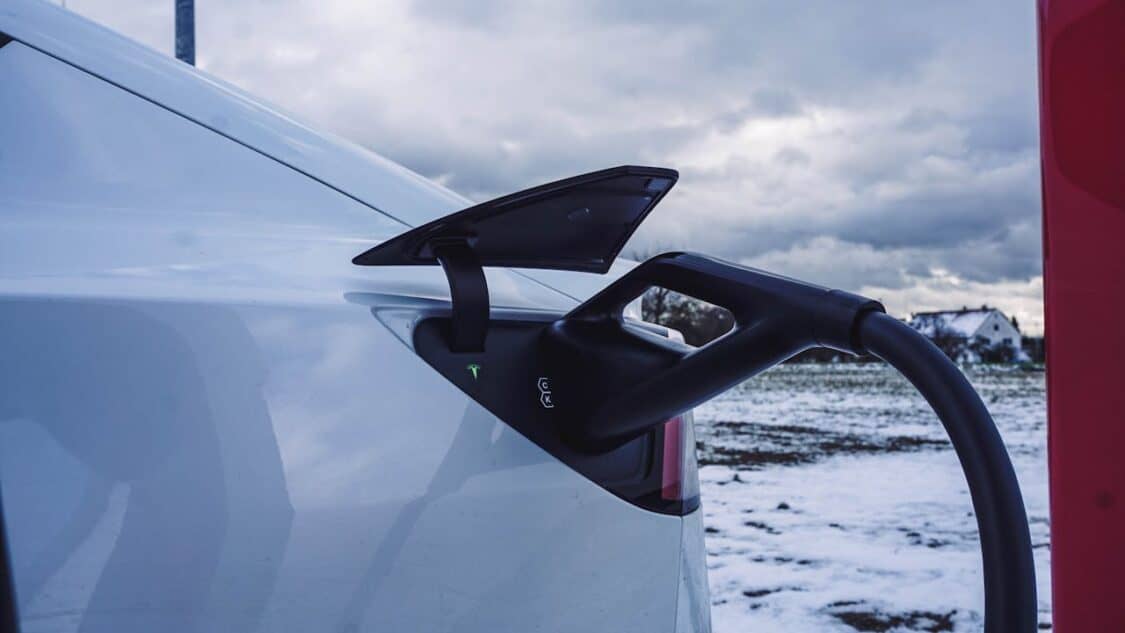
There are multiple ways to look at topping up an EV battery versus fueling up a gas-powered car. First, let’s see what we could expect for monthly costs, on average.
Home EV Charging: Cost Per Month
To figure out how much you’ll spend with a home charging station with a basic Level 1 or a faster Level 2 charger, you’ll need to calculate the amount you pay for electricity every month. As of January 2024, the average U.S. household pays 15.45 cents per kWh, according to the U.S. Energy Information Administration.
Then, you have to look at how far an EV can go for every kilowatt hour. A conservative average is 3 to 4 miles per kWh.
Divide the total miles you drive every month by 3 or 4 to get your monthly kWh use. (Americans tend to drive 12,700 miles every year, so that would mean 1,058 miles per month. Whew.) Then multiply that number by your cost per kWh.
So let’s use those average numbers for everything, and we can get an average American cost to use a home charging station:
(miles driven per month / miles per kWh) x cost per kWh = monthly charging cost
(1,058 miles per month / 3.5 miles per kWh ) x 16 cents per kWh = $46.70 per month for home EV charging.
Filling a Gas Tank: Cost Per Month
Filling up a 12-gallon gas tank currently costs nearly $44, assuming an average gas price of $3.66 per gallon. If you’re driving a car that gets a combined average of 30 miles per gallon, you’ll get 360 miles of driving range before you hit empty.
To hit that average 1,058 miles per month, you’ll need to refuel three times each month (1,058 miles divided by a 360-mile range) and spend roughly $131.76 per month.
ADVERTISEMENT
How Much Does It Cost To Charge an Electric Car: Cost Per Fuel-Up
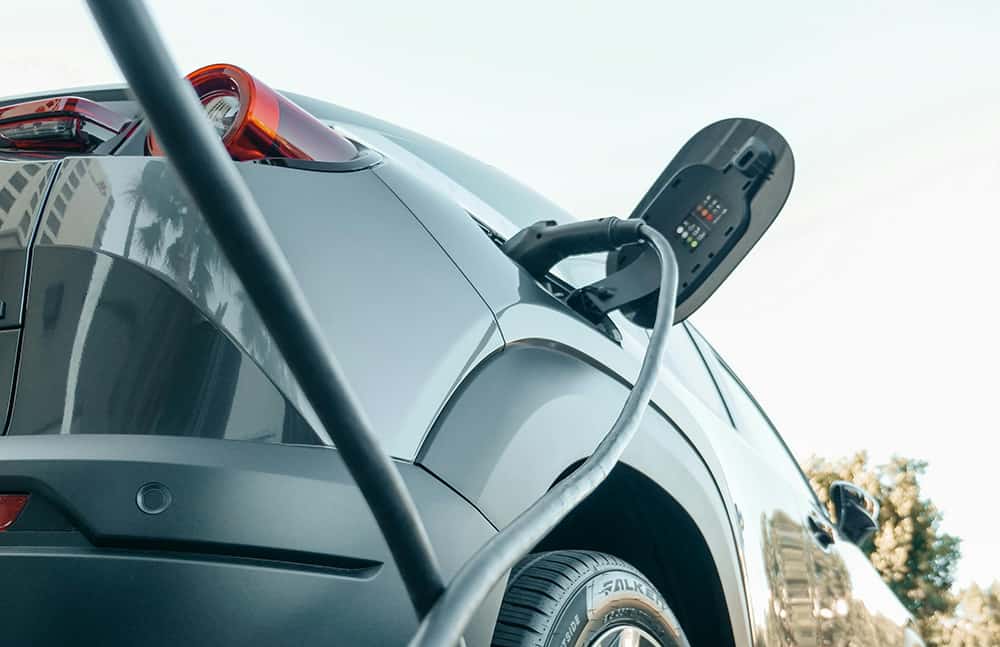
Maybe you’d rather know how much you can expect to pay for just one complete recharge versus one full tank of gas.
Home EV Charging: Cost to Charge
To look at how much it might cost to recharge an EV battery from 0% to 100%, we use a slightly different formula. For this, you divide the car’s range by the range per kWh. Then you multiply that by the cost per kWh.
(car’s range /miles per kWh) x cost per kWh = cost to charge
So let’s say your EV gets 360 miles of range, and your kWh per mile is somewhere between 3 and 4 miles, with your cost per kWh still being 16 cents:
(360 miles of range / 3.5 miles per kWh ) / 16 cents per kWh = $15.89 per full charge
Gas Stations: Cost to Fill Up
We’d use the same formula as above, but instead of kilowatt hours we’re using miles per gallon and the cost of a gallon of gas.
(car’s range / miles per gallon) x cost per gallon = cost to fuel up
Let’s say your car gets the same 360 miles per tank of gas, with a 12-gallon tank, so you get 30 miles per gallon combined. And for the sake of simplicity, let’s use that same cost of $3.66 per gallon. So to fuel up an empty tank, it would cost:
(360 miles of range / 30 miles per gallon ) / $3.66 per gallon = $43.92 to fuel up
An easier way to think of this is to just take the size of your gas tank and multiply that by the cost of gas per gallon. So to fuel up from totally empty, you’d spend:
12 gallons in a tank x $3.66 per gallon = $43.92 to fuel up
ADVERTISEMENT
Commercial EV Charging: Cost to Charge
But hey, not everyone is going to be charging up their EVs at home – that’s why more and more companies are trying to build out EV charging infrastructure. It’ll probably be more expensive to use a commercial charger than to charge at home, but is it still cheaper than filling up a gas tank?
It’s tricky to know exactly how much a public EV charging network will charge per kilowatt hour. You can estimate that a public Level 2 charger will cost 20 to 25 cents per kWh, while the increasingly common Level 3 public chargers will cost 40 to 60 cents per kWh. Basically, a commercial EV charger will cost you maybe two to three times as much as using a home charging station.
We’d still use that EV formula from before, but let’s do a few pricing options for your easy reference. Let’s tackle if it costs you 20 cents, 40 cents, or 60 cents per kWh to charge at a commercial EV charger.
(car’s range / miles per kWh) x cost per kWh = cost to charge
So if we’re using the same car that gets a 360-mile range and gets 3.5 miles on a kWh:
20 cents per kWh: (360 miles of range / 3.5 miles per kWh ) / 20 cents per kWh = $20.57 per full charge
40 cents per kWh: (360 miles of range / 3.5 miles per kWh ) / 40 cents per kWh = $41.14 per full charge
60 cents per kWh: (360 miles of range / 3.5 miles per kWh ) / 60 cents per kWh = $61.71 per full charge
So yeah, charging an EV from 0% to 100% on a commercial EV charger would still be cheaper than filling up a gas car ($43.92) from totally empty to full if you were paying from 20 to 40 cents at a public EV charger ($20.57 to $41.14). It definitely gets more expensive above the 40-cent threshold, but something to remember is that you most likely won’t be using only public charging stations to charge up your EV — you’ll probably be doing a mix of charging at home and charging at public stations.
You don’t have that option with an ICE car — you always have to use a gas station to fill up.
Something to Consider: Fluctuating Electricity Rates
It’s important to note that electricity rates vary based on factors such as location and time of day, so where you live can have a significant impact on your electric bill.
Or maybe you’ve bought an EV that offers free charging at DC fast chargers through a partner network — that would help out a ton when it comes to cost-savings on charging up, too.
Electric car owners also do have the option of installing a Level 2 home charger, which can cut their charging time by half but costs around $2,000 for parts and installation.
So sure, some drivers may be hesitant to consider an electric car due to concerns about access to public charging stations, or about the time it could take to charge up. But it turns out that as much as 90% of car charging is done overnight, at home — when electricity usage and costs are usually at their lowest.
Ready to Make the Switch?
If you’re on the fence about the cost to charge an electric car, maybe this guide will help you out. You can also get some help from the Department of Energy’s Vehicle Cost Calculator to see your average costs of ownership. It’s another handy tool to have in your pocket if you’re looking to make the switch to electric.

FEATURE IMAGE: KINDEL MEDIA
FTC: We use income-earning auto affiliate links. Learn more.


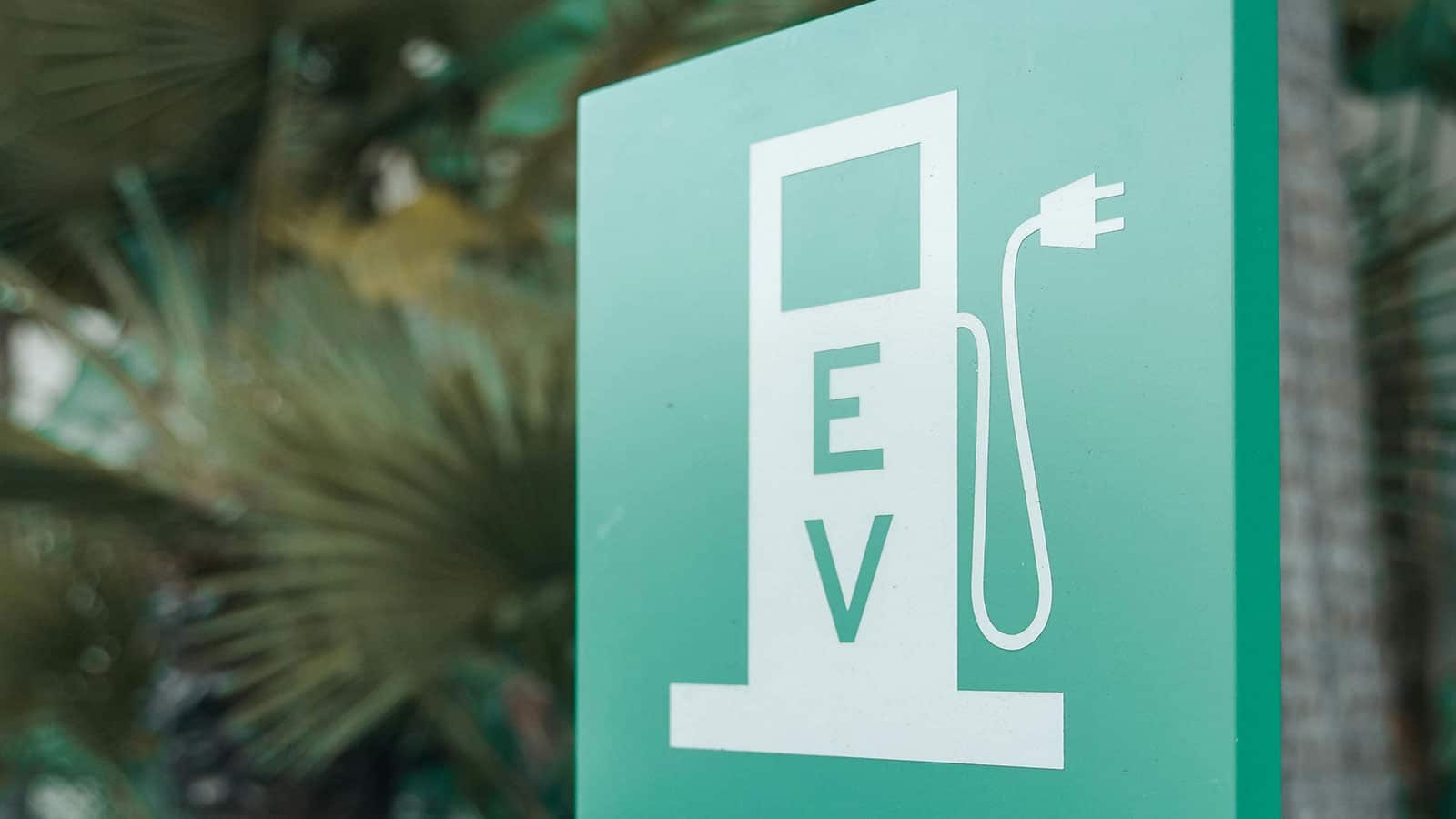


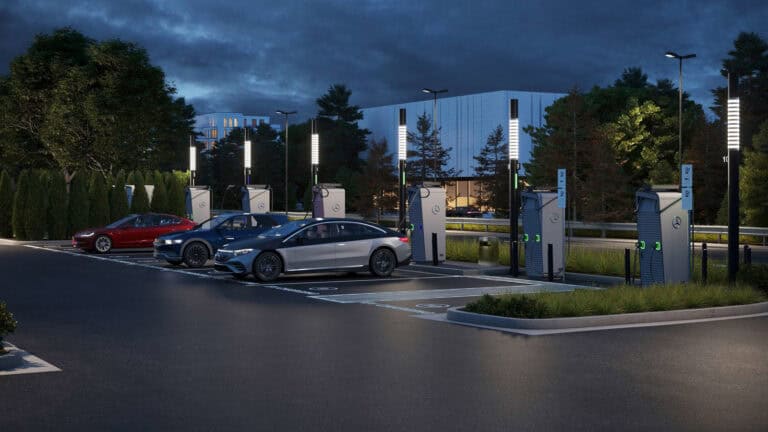
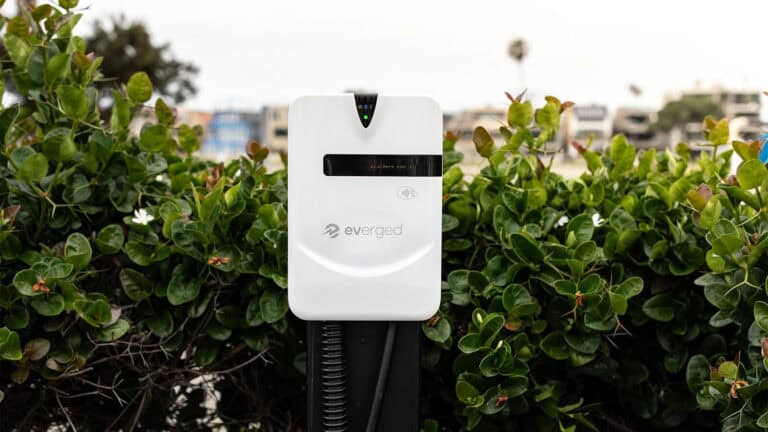
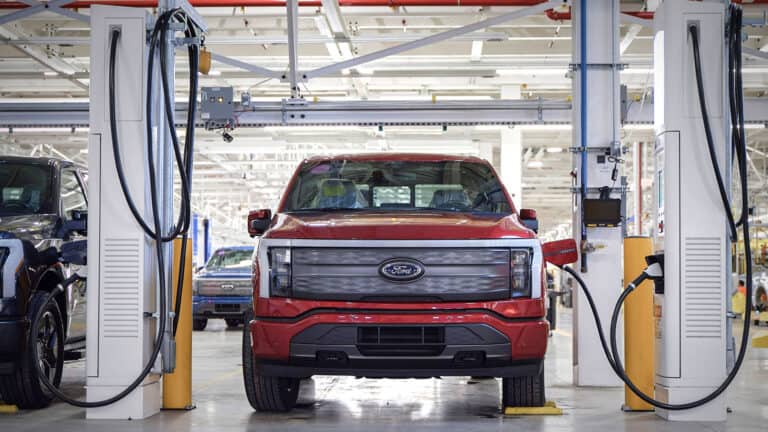
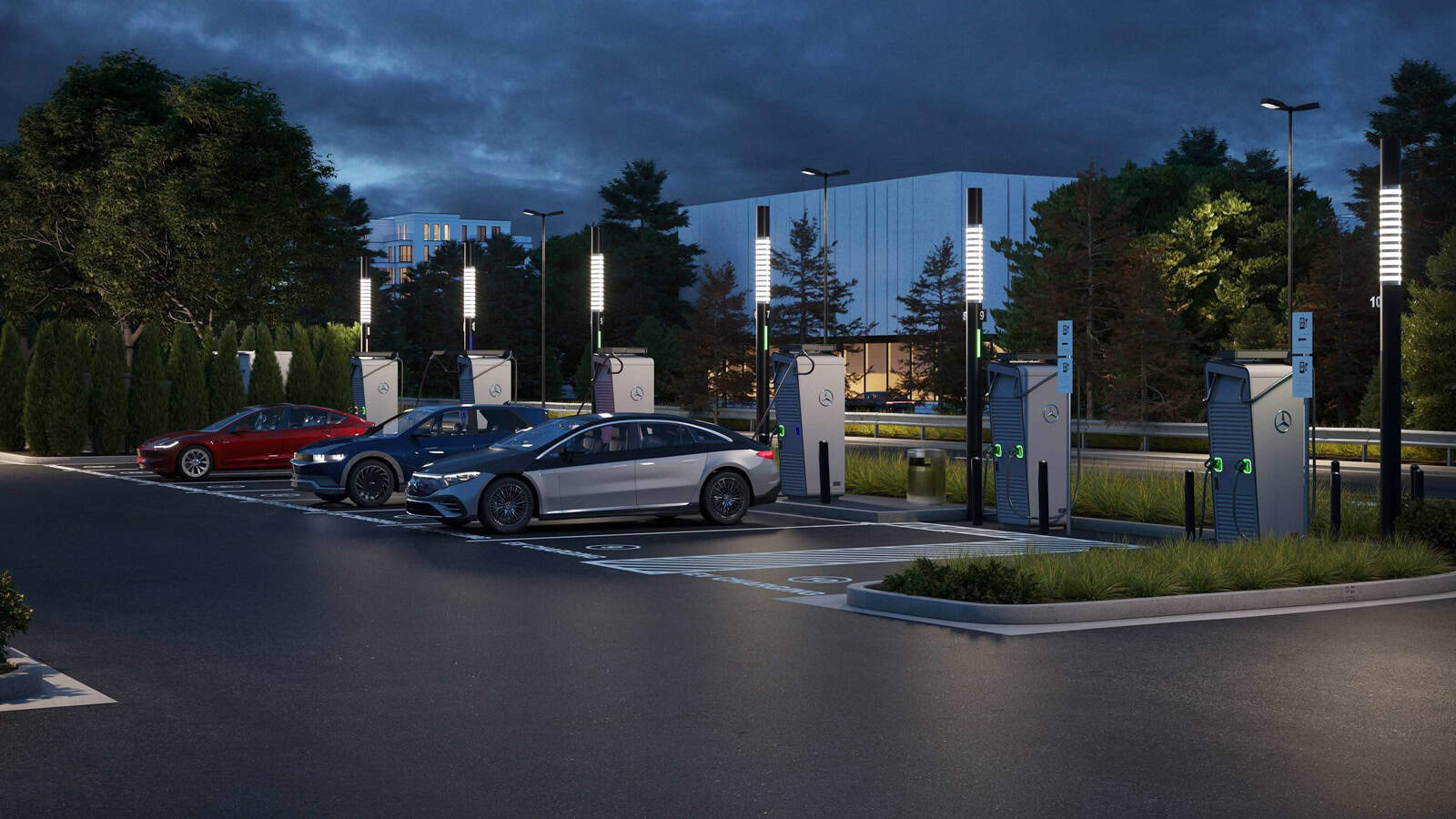
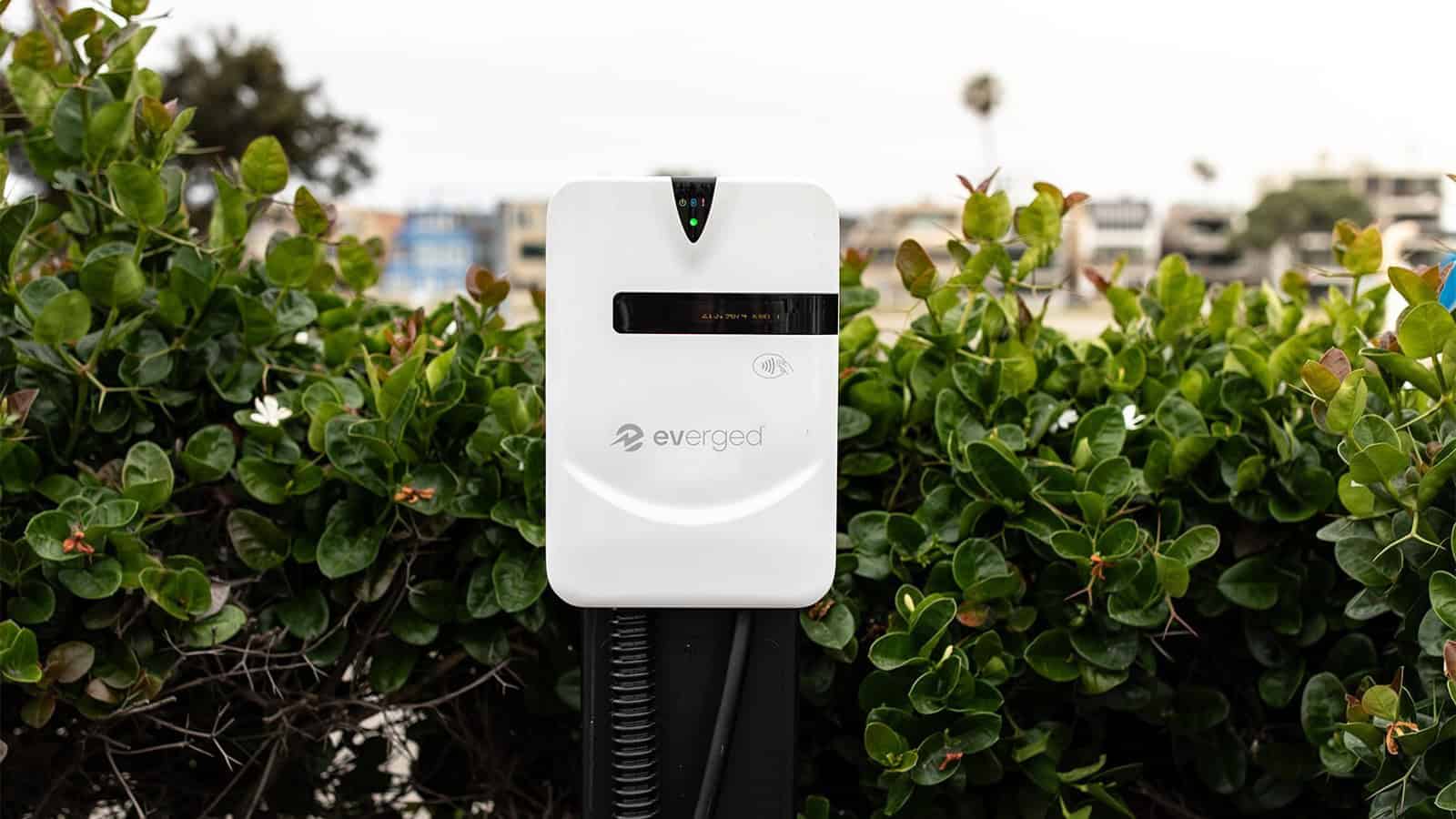


69 Responses
While the cost per fillup/charge is compelling, it doesnt solve the problem of how long it takes to charge to full. Nor dies it take into account that many destinations simply dont have charging options. If I drive 4 hours to my parents cabin in mid-Michigan (approx 300 miles), I have no options within an hour to charge my car to drive home. And unless they have a super chargers at the cabin, I couldnt fully charge an EV on 110 for multiple day unless I have another car there with me to drive anywhere I want to go once I get there. Without a PHEV option or a SIGNIFICANT increase in available charging stations outside of cities, I would need to forego such a trip altogether. As of today, the tourism industry in northern Michigan would see a high percentage drop in income if EVs were our only option – time to recharge and lack of charging options will continue to be a limiting factorto full EVs except in city situations (where it does make sense if you are a fan of EVs).
I usually stop for a coffee and a visit to the toilet and stretch my back after a couple of hours on any journey.
Plug in while you’re doing that and add 150m to your battery. Doing the same on the way back I arrive home with 20% charge then fill up at home where it’s cheaper.
I’ve also installed solar panels so my first and last charge are free. I get a great sense of satisfaction for the reduced damage I’m doing to the planet by not burning fossil
What about the damage to the environment to produce the electricity needed to charge your car ,
The battery will last about 10 years and a new batteries will cost more than the car will be worth.
Then you have to buy a new car which takes an enormous amount of electricity to make, in the end
It does more damage to the environment than a gas car does
Very true, but most people don’t consider the long term, or the impact of mining for batteries and motors.
What are the costs to improve the electrical distribution system ( the power) to supply all the extra power to charge ALL the EV’s in addition to keeping the lights on and appliances running in ALL the homes and businesses? That will have to be paid for by electrical power consumers. In my opinion, the cost the electricity will have to go up to build the extra electrical capacity.
You are spot on Michael ! ………………….This is what annoys me about ev owners is that they think their saving the world but don”t or can”t see the bigger picture.
It’s all a joke from type of pollution to another
That’s exactly the point. Unfortunately
Thats my thoughts also.
Agree
I too agree! What happens to solar panels when they come to the end of their term? And wind turbine blades? The future holds many surprises!
Where do you think electricity comes from? Where are all the expired batteries going to go when they are done? What is your battery made from? What mining practices does that country use? What is your car made out of? Is there any plastic? Dream on.
Agree with you and on top of that if you pay $10,000 more to get an electric car that is a lot of gas at the pump ,where is the save???
You are using fossil fuel to charge use car
What about the damage you are doing to the planet that has to supply the lithium batteries and will have to find a way of a safe disposal of millions of them as well ?
Here are a helpful article: https://electrifynews.com/news/batteries/what-is-an-lfp-battery-and-what-does-it-mean-for-evs/
What about the damage to the earth with all the mining?
How much did the solar panels cost you? You need to figure that in to your cost to operate your EV.
Where does that electricity come from when you charge at home? The grid? And where does the grid get its electricity? Mainly from burning coal, oil, gas and from nuclear reactors. Glad you feel good about not burning carbon based fuels.
I agree with all of the above and not to forget the extra weight of the EVs and the damage this causes to roads and highways. Plus the exitra wear on the tires. By the way tires also pollute !
My husband and I are in our eighties… quite active and travel a lot. An EV just doesn’t make sense for us! The Push is in our opinion too extreme with little foresight and planning! You to have blinders on to believe what the Government is truly no to sell us!
Hit the nail directly on the head!!😊👍
It takes coal to make electricity. So maybe that will burn more fossil making more electricity for these cars
diesel for long range distances and electric for daily. if you have money for an electric you sure as hell have money for an economic diesel (doesnt have to look good)
I have a 2014 VW Passat diesel which I paid $12,400 used. It is much more economical than any electric vehicle and I will NEVER have to replace any expensive battery. Oh and range is up to 650 miles and this car will also outlast almost anything on the road. Did I say my car is also very stylish?
On 110 v I can charge my Tesla Y overnight if I don’t have a 220 v charger available so that is not an issue for me. You have to sleep while on vacation and most people are not driving around for 24 hours a day when on vacation. Charge while you sleep. I have taken my Tesla Y on long trips and was never on a supercharger longer than I would have stopped at a gas station. I usually drive about 200 miles and stop whether I’m driving my Tesla Y or one of my other gas cars. Supercharger stops are usually long enough to get a snack and go to the restroom before the car signals that it is ready to get back on the road.
I fully support you. Our busiest roads service more than 2000 cars per hour. How long will it take me then to re-charge with 2000 other cars re-charging. And then, going Johannesburg to Durban, you will probably have to re-charge at least three times. Not to mention Johannesburg to Cape Town.
In South Africa electric cars won’t be viable – due to permanent powercuts DUE from Ramaphosa’s ability to systematically destroy a country supplying no electricity.
Also exhorbitant High interest rates here in South Africa won’t allow for solar charge alternatives – unless you are wealthy investing USD 15000 solar kit into your home.
Also no EV plug points anywhere in SA
Fair point, but the speed of innovation in ev tech, the additions of *many* public charging stations, and advances in a cars’ charging speed is eroding this disadvantage. For some, it’s not quite there yet. But it will be.
How often do you visit your parents cabin and return after an hour? Once a decade? Let’s say it’s once a year. If my kid told me we needed to buy a horse because they wanted to ride it once a year even though they have a bike, I’d look at them like they were nuts. Rent a horse, borrow a horse, find a way to make due with the bike so we don’t have to waste all our money on a horse we hypothetically need once a year. I’m looking at you the same way.
You are ignoring time taken which is also a cost. Driving down from Gauteng, RSA to Cape Town, 2400km. One will have to charge +- 8 times, assuming there are not 10 -20 cars already charging and you have to wait your turn. Some towns are 320km or further apart. Even going down to Durban, 600km, one will have to charge 3 times at least because of the distance between towns. Being our busiest route with 100’s of heavy vehicles and upwards of 2000 cars per hour, its going to cost you time, lots of time. I suppose there are even more cars on the road in the USA.
Gauteng to Cape Town is 1350 km and needs 2 to 3 recharges on the road
I don’t quite understand your method of calculation. Does an EV take 3.5 KWK to go a mile or does it go 3.5 miles on 1 KWH?
initial cost of a ev is approximately $10,000 + over the cost of a gas vehicle, batteries which have a life span of approximately 7 years need to be replaced at a cost of over $10,000. You need to add these cost in.
We drive an 11 year old EV, with 11 year old batteries, every day. Has 2/3 the range it has when it left the lot brand new. We are not unicorns. And we are not overly kind to it, either.
Not a bad article, however I feel the writer was somewhat negligent being there was no mention or example of how cold climate can have on the typical EV range/performance.
From personal experience, range is cut in half even with parking in a garage heated to 5C. Summer and winter energy consumption have ended up being two different stories. Without level two charging I would have had problems keeping charged as there is still a lack of level three chargers in Alberta, Canada. No other issues in the cold weather, and the best heater I have ever had. (Chev / Bolt)
No one mentioned the added weight of EV’s. Tires don’t last as long, and there not cheap. Cold climates are hard on batteries. My friend now regrets, some days in really cold he only gets 100 miles of driving. Giving us numbers under ideal conditions creates false hope.
So in Australia our electricity costs are 2.5 times higher than the us and Electric still makes sense our fuel cost are 3 times higher and an average fill for a small car will exceed $150 AU It would not be uncommon to require 2 fills per week . one of the big pluses is over 50% of the houses have rooftop solar, we are a sunny country and charging my electric vehicle costs $0.00
Imagine going from Brisbane to Gold Coast or say Bribie Island, Noosa or else for the weekend, you cannot charge overnight at home, it will cost you a pretty penny. Will there be charging stations on those very busy roads?
Yes because our motoring organisations re installing them. And it’s still much cheaper than petrol.
at the moment. you just wait until you have gone pastor no turning back,charging your so loved ev will cost you an arm and a leg
That’s absolutely misleading crap Alan. Your facts are all wrong. For one a small car would only cost A$30/40 per week, one fill). Second there would be lucky to be 25% of all houses with solar? Whilst our electricity charges are ramping up due to stupid and irresponsible government sustainable energy policy and targets, our electricity are only 25/30% higher than the US. So stop misleading people??
Gas taxes(which are high) go to build roads, bridges and maintain them. Where is this revenue coming from? How many jobs will be lost? When comparing put all costs in.
This calculation is for the birds. I have yet to see a car with a range of 360 miles. Tesla might be the only one if you don’t drive to fast and part of the road is downhill. Driving in the winter any range is pretty near cut in half if you want to stay warm in the car.
My BYD has a range of 480km. It’s reduced a bit on freeway driving but it would still be 360km plus. There are cars out there with a range of 600km.
After 3 Years the battery will be down to half that, Thats providing you dont drive hard..I live in Tenerife and see people queing up for charging points..Dont listen to the so called specialists they are usualy one offs..We might do better with Hydrogen engines at a later date in the future..
Again the Left does not look at the big picture; while you can make a case “for” e-vehicles now, the use of overnight charging will become very much more expensive as more and more evs drive up passive time charging which will become high usage time and of course, the utilities delivery charges will continue to rise as more and more people become dependent on electricity that is already in short supply. They are also not telling you where the indirect taxation for road infrastructure will be coming from, etc.
So now calculate how many miles you have to drive the break even on the price difference between an ICE car and an EV do note that an EV depreciation is way higher that that of an ICE car. You will be surprised how many miles you have to drive before an EV becomes economical. Service cost are lower for an EV but if you have an issue with the battery you are talking of 10.000’s of dollars to get it fixed.
Yes Marc you are spot on. I haven’t seen any EV reviews look at the pay back on an EV for the investment and resale value after 10 years compared to a ICE vehicle
All you EV enthusiasts are absolutely out of touch with reality,the EV technology needs at least 10 more years of research and testing to eliminate all the high cost problems related to EV’s at the present time,how long did it take to perfect the gas and diesel engine? 90 years? So let’s get the infrastructure down first,and come up with a solution of how to dispose of these batteries and a better battery that doesn’t destroy the earth to manufacture,and one more point,most of us are not wealthy enought to purchase or deal with the EV problems
My issue is the :green-ness” of an EV. No one wants to talk about where the power will come from to charge them ( there will NOT be sufficient electrical energy by 2035, no matter what Trudeau says), wind and solar aren’t going to be even close to being able to supply the shortfall, and whatever capacity they do have should be used to facilitate shutting down coal fired plants. Coal is the dirtiest fossil fuel on the planet and the world generates over half of our electricity by burning it. It should be a no-brainer to get coal fired plants shut down rather than more than doubling the domestic load with EV’s. Then there’s the mining of the various elements to build the batteries and a means of disposing them when they are not longer able to power a vehicle.
They are already building batteries recycling plants and the price of batteries are coming down and getting longer mileage all the time. I
W8ll taxes on fuel go down when theres more el cars??? Where will the money come from for roads if theres no more fuel cars… what roads are the fuel cars going to use???
For the price of a new Tesla the last thing you should be concerned about is the cost of re-chargingl if that is your problem you should be driving a Toyota. You will never recover the savings in fuel by buying an electric car to cover the cost of the car.
I just bought a Nissan ICE car. Wanted a Toyota Prius Prime but was told wait time would be 5 YEARS!! Who buys a car like that?
TAX the diesel more for the heavy vehicles on the road
Three comments. First, EVs are not paying their fair share of road taxes where fuel users do. Infrastructure needs to be maintained now and into the future. Next look at the total costs. The calculations are missing the distribution, transmission charges as well as taxes on the utility. Last, an average EV SUV require 83 hours of 110v and 7.5 hours at 220v to charge to around 60kWh’s full capacity. That’s a lot of juice people. An average house uses 30kWh per day. So where is all this needed electricity coming from!?
Increasing tax on diesel would increase the cost of the deliveries those trucks make to industries and retail which would be passed on to every consumer. Nobody should or would escape that cost. Big trucks are used to repair the infrastructure that everyone uses to get from point A to point B. No free rides ever
Tax the diesel semis more and ALL prices go up because, that tax will be passed on to the consumers!
Meaning food goes up, as well as all other products.
all EV need to have some sort of recharging to boost the batteries, not to be ignorant about it all and this will reconfigure the shape of all vehicles and standing still vehicles can be recharged by wind if there is a wind at the time of being immobile., all this needs to be sorted out by ENGINEERS as they are getting paid for this type of service, but millwrights and electricians have had to solve these problems as engineers sometime flub it all au anyway.
I thing you missed a very important cost. The battery replacement cost. The fuel tank don’t ever change instead of batteries which you must replace after 10-12 years. The 60% of the EV car purchase is the batteries. So divide 60% you paid / 144 months and add it at the monthly charging cost.
Assuming that for your new EV you payed 40.000$. So 60% is 24.000 and if divided with 144 months you get a cost of 167 $ + 40$ month charging you get about 200$
I drive a 2018 Volt. Retired so I don’t drive as much but it is a great car.
On the highway it runs mostly on battery with the gas engine providing regeneration.
Electric cars do not help the environment. With the CO2 emissions being 70%higher than a petrol car to build the EV in the first place, I would much rather keep my money and buy a petrol car – especially with the cost of battery replacement being around the $20k mark.
They are not worth the money you spend on them and the emissions to build them well and truly outweigh their benefits.
Ev cars cost approximately $10,000 more then an ice car. So $129/mth ICE fuel costs – .46.76/month EV charge costs = $82.24 in savings per month. But because Ev cost that 10,000 more to initially buy…
$10,000/82.24= 121.59 months to break even or 10.13 yrs… please remember the batteries last around 7 to 10 years and have to be replaced. Net savings….. $0. It is not about cost of fueling vs charging and i wish people would stop using it as an arguement for EV. It’s not as this breakdown doesn’t including costs to install a charger into your home etc. it is not about costs per month, it becomes about the effects on our planet. People also overlook the changes that will need to be done on our electrical infrastructure to allow every home to have EV charging. (Transformers/lines/power generation increases). There are issues that need to be worked out, not that they can’t be, but there will be costs to doing so, to pretend otherwise is no different then pretending that continuing to pollute our air with exhaust fumes is not effecting our planet. We need to have realistic discussions on the costs of both options and make our choices
But how is electricity generated? Mostly by fossil fuel. Just saying
Here’s a shock for you…
If you can’t afford to pay, you have to walk
Independent is what Made this country great depending on energy from others is a monkey on our backs. It’s great to be able to tell people I don’t need you, and other countries.
The big surprise ti ev drivers will be the highway taxes that are not being paid that are already in gas prices..Ev’s are heavier and will be taxed as heavier damage to the infrastructure.
If you get stuck in a highway traffic jam for hours and run out of electricity, how do you get an emergency fill up? You can have someone bring you an emergency gas, but is there a way to get emergency’ electric?